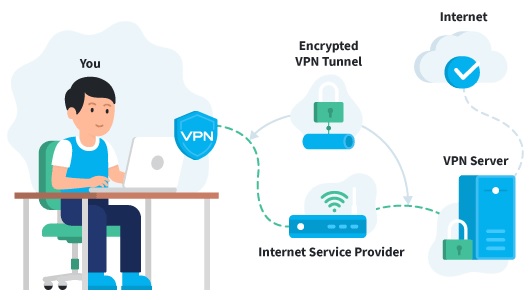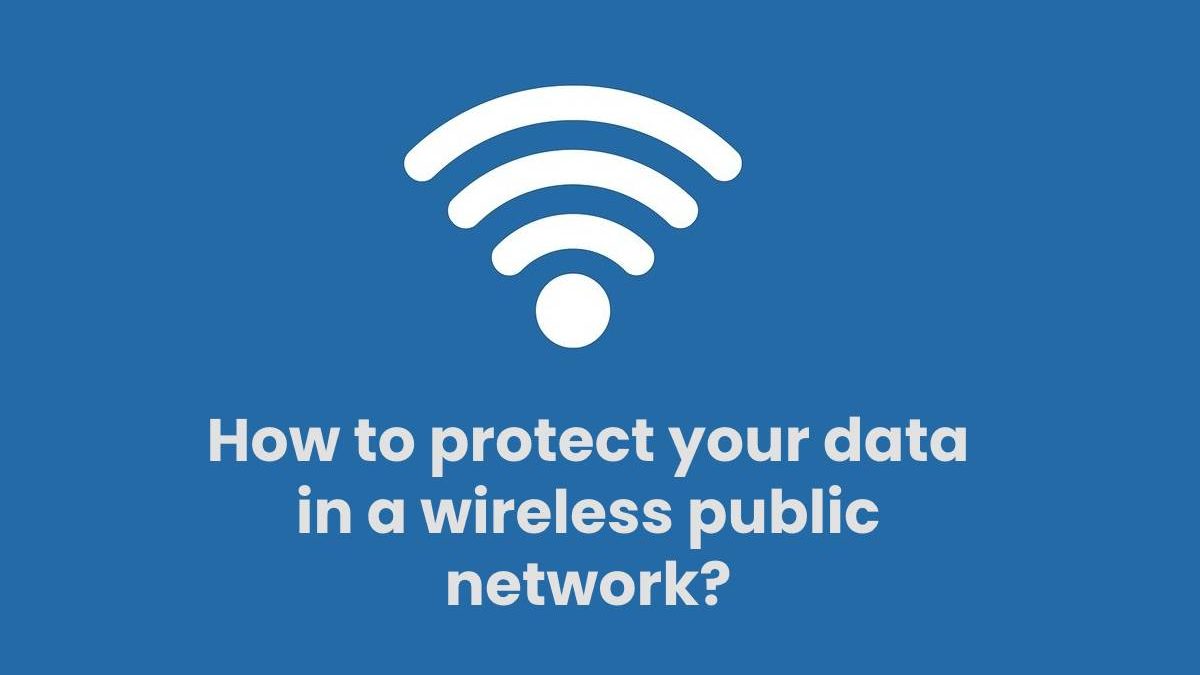How to protect your data in a wireless public network
Table of Contents
Turn off your WiFi on your phone when not in use.
Do you find yourself leaving your WiFi turned on when not in use? If so, you are wasting a ton of data. This is because even though it may show that there are no devices connected to your router, they could still be using the internet. You can prevent this by turning off your WiFi on your phone when not in use!
Use a VPN to encrypt your data.
A VPN encrypts your data when you use public WiFi, which is very important. Hackers and other people on the same network can access your private information if it isn’t encrypted. A VPN service like VPN unlimited keeps all of your personal information secure and private by using an encrypted tunnel to connect to their servers through a third-party website.

This means that nobody will be able to see or access any of your sensitive information, such as credit card details or passwords, while you are browsing online!
Change the default password for any wireless networks you join.
If you have a wireless network at home or work, it is important to change the default password. Hackers will try to hack into your WiFi if they can access your router. If you do not have a custom password, hackers may break in and use your internet, leading to an overload of data on your end.
It is also possible that someone may steal information from other people using the same public network as you. You should always ensure that you are using WPA2 security when connecting to any wireless networks because this makes it much more difficult for hackers to access your files.
Enable data encryption on all of your devices.
Enabling data encryption on all of your devices is a quick and easy way to protect your information. If you have ever lost a phone or laptop, then you know how much it sucks when someone else gets access to all of your personal information.
It’s even worse if they use that information against you in some way. This article will show you how to encrypt the data stored on most modern devices, including Android phones and Windows laptops/computers.
Turn off Bluetooth and NFC (near-field communication) when they are not in use.
For many people, the Bluetooth and NFC features of their smartphones are a great convenience. However, using these features can also have some downsides for your battery life and device security.
The professional tone is evident due to the amount of research that has been done on the topic by professionals who know what they’re talking about. The author takes a professional approach towards an issue that most consumers aren’t aware of but could have serious consequences if action isn’t taken quickly enough.
Avoid public networks like Starbucks, McDonald’s, etc., which can be hacked.
We all want to save money. The internet is a great place to do that, but not if you’re using public WiFi networks like Starbucks or McDonald’s. These are vulnerable and can be hacked into by people with malicious intent. So turn off your phone’s WiFi when connected to these networks – it will use up less data anyway! ____ This blog post talks about how the safety of our personal information may be at risk when we connect over WiFi in public places, such as coffee shops or restaurants.
Update all software and firmware.
Update all software and firmware to make sure that it is up-to-date with the latest security updates.
We’ll discuss what hackers might do if they get access to your account and then give some tips for protecting yourself while browsing online in public spaces. For more info on this topic, please continue reading!

It is important always to keep software and firmware up-to-date. This ensures that your device will continue to function properly, keeping you protected from viruses, malware, spyware, etc. If you are ever unsure about the status of your software or firmware updates, there are a few ways that you can find out from VPN software for mac.
Don’t open emails or click on links that look suspicious or “phishy.”
Recently, we’ve seen an uptick in phishing scams. Phishers use more sophisticated techniques and tools than ever before to deceive you into thinking that their emails and websites are legitimate.
They’ll send out fake emails to trick you into clicking on a link or opening an attachment. Once they get what they want from you, they’ll just move on to the next victim. Don’t let them fool you!
Change passwords frequently.
Passwords are a necessary evil in today’s society. They help protect you from hackers and criminals alike, but only if they’re strong enough. To ensure your passwords are as strong as possible, it is important to change them frequently (every 3 months is recommended).
This ensures that anyone who has your password will no longer be able to access it after a while. If you follow these tips, you’ll never have to worry about someone accessing your personal information again!
Download an antivirus app like AVG or Avast.
Download an antivirus app like AVG or Avast to scan for malware before opening attachments or clicking links
Malware is a computer virus that can infect your device and steal personal information. It’s important to download an antivirus app like AVG or Avast before opening unknown emails, attachments, or clicking on links. Follow these steps to get started:
1) Download the free version of the antivirus app from either the iOS App Store or Google Play Store
2) Open up the application and select “Scan for malware.”
3) Wait while the program scans your device for any viruses/malware
4) If no threats are found, you’ll be notified with a green checkmark in a circle. If there are threats found, it will list them on screen, so you know what they are
5) You can then delete each threat one

